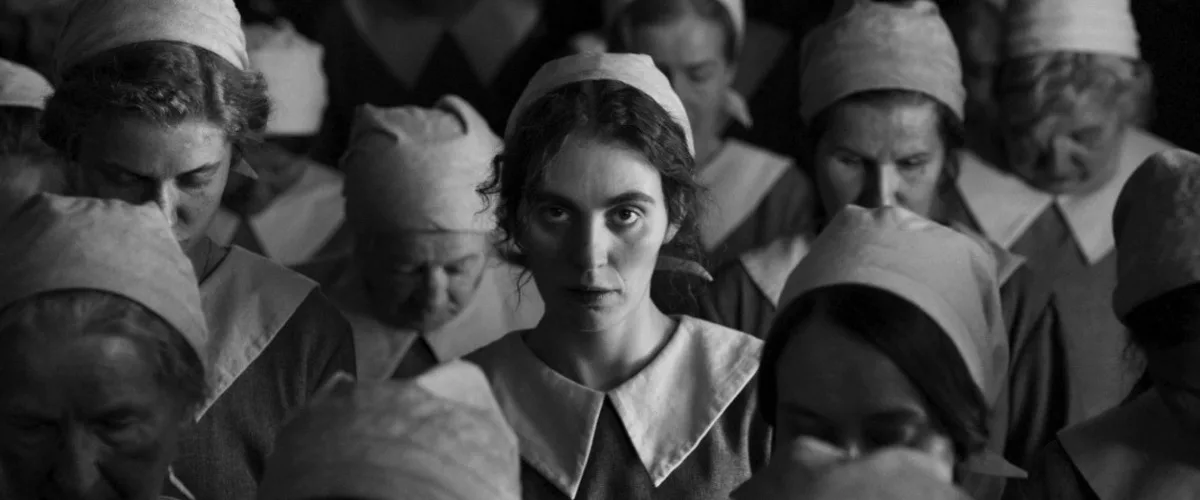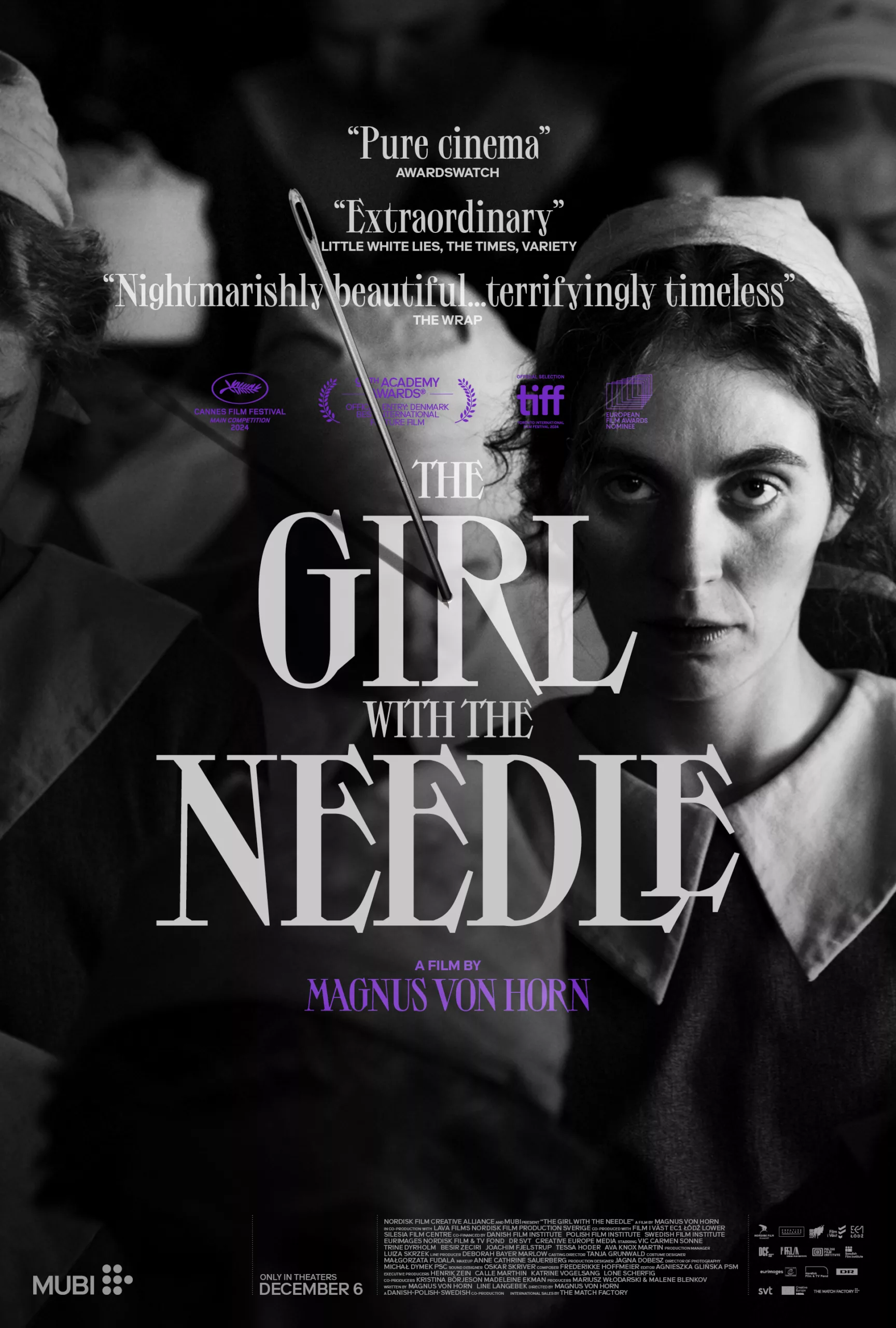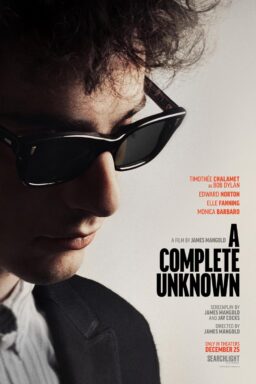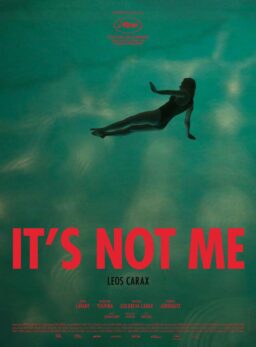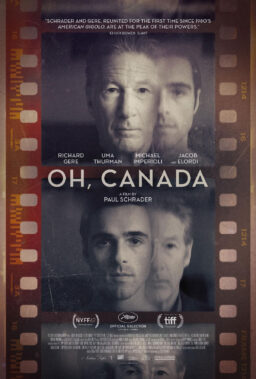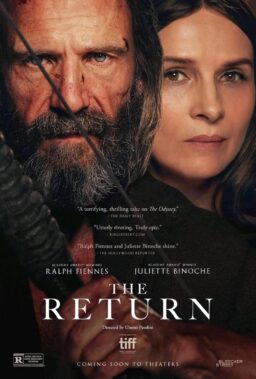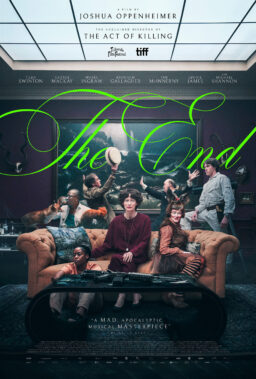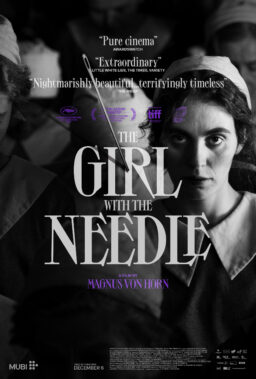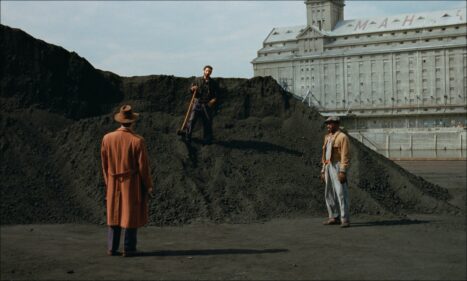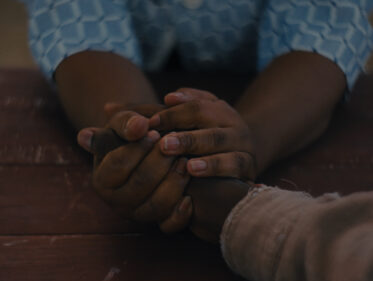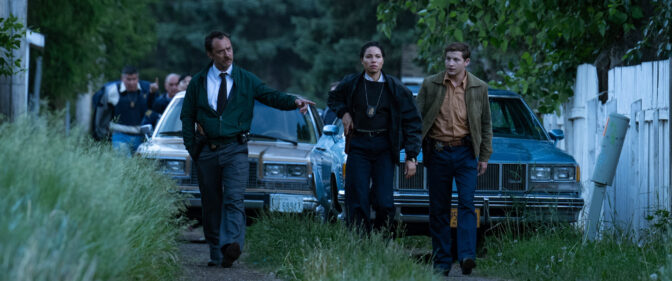Magnus von Horn’s “The Girl with the Needle” reminded me of the excellent and unsparing “Beanpole.” If you’ve seen the latter film, you know the degree of miserabilism that comparison entails. This is a relentlessly grim piece of filmmaking, a reminder that women on the fringe of the economic ladder have been marginalized for generations, around the world. Based on the true story of a Danish serial killer named Dagmar Overbye, “The Girl with the Needle” becomes almost numbing in its brutality. Still, it’s a well-made drama with a resonance that echoes a hundred years after the crimes it documents.
Overbye isn’t actually the lead of “The Girl with the Needle” as Von Horn & Line Langebek’s script centers a young Danish woman named Karoline (Vic Carmen Sonne) instead. She’s introduced on the final edge of poverty, about to be evicted after not paying rent for weeks. Her landlord has been letting her stay but now he has to show the apartment, and she’s got to go. Where? He doesn’t really care. The sad truth is that no one does.
Karoline’s fate seems to turn when she starts an affair with her boss, Jorgen (Joachim Fjelstrup), who agrees to marry her. Still, the revelation that Karoline is already pregnant by this wealthy man disqualifies her from joining a life of opulence. The mother of the truly weak Jorgen cancels the marriage and forces Karoline back into the street, now pregnant and more alone than ever. (Echoes of “Anora” are clearly unintentional but a reminder of how class and gendered judgment of sexually active women haven’t exactly gone away.)
The dire situation leads Karoline to attempt to abort her own child with a needle (giving the film its title), but she’s interrupted by Dagmar (Trine Dyrholm), who offers to find the child a home for a fee. After undergoing that process, Karoline still has nowhere to go, so she ends up alongside Dagmar; however, she discovers that her new ally isn’t really finding homes for these unwanted children after all.
Von Horn’s approach in “The Girl with the Needle” is nearly suffocating. Yes, it’s gorgeously shot by Michael Dymek, but nearly every frame feels soaked in menace. It creates a tension similar to a horror film in that we await each new narrative turn with the dread that this story can’t possibly end happily. And Von Horn leans into that genre tone, particularly in a score by Frederikke Hoffmeier and sound design that’s dissonant, almost an electronic score of hums and screeches more than traditional compositions. He also returns to images of distorted faces – not just Karoline’s husband, who was disfigured in WWI, but a prologue that includes faces projected over each other and the way shadows cast on Karoline’s face as she discovers the truth. All of these people are disfigured, even if some are only so on the inside.
Sonne gives a fearless performance, but Dyrholm matches her with committed intensity. She doesn’t lean into a portrayal that “excuses” the crimes of Overbye but she understands how society created the dynamic that led to these murders. They’re both smart performances that underline the themes of the film and yet also feel natural and urgent at the same time.
“The Girl with the Needle” is a tough watch, and that non-stop misery can make it a bit more monotonous than it needs to be. However, some stories need to be told without softening, and it feels like Magnus von Horn and his team understood that you can’t document the crimes of Dagmar Overbye with an ounce of melodrama. It needs to be tough. These lives and choices were tough. It needs to get under your skin. It’s not a needle in case or on a shelf. It’s one that can cut you.
